Issue Date: June 2, 2006
Movies that caused an uproar
By STEPHEN WHITTY
Religion News Service
Even films made with the best intentions have run into trouble when
tackling spiritual subjects. “The Da Vinci Code” is the latest of
many to arouse controversy. Some of the others include:
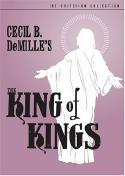 “The King of Kings” (1927) “The King of Kings” (1927)
Cecil B. DeMille’s great biblical epic took his usual textual
liberties, including making Mary Magdalene a wealthy woman imperiously
commanding, “Harness my zebras!” (When a Jesuit scholar tried
pointing out some of the mistakes, DeMille told him to go to hell. “I
already have a reservation elsewhere,” the priest coolly replied.)
Ultimately the film was censored in some states, nearly banned in England and
declared anti-Semitic by B’nai B’rith. It played for years.
“The Sign of the Cross” (1932)
Supposedly a story of the early Christian martyrs, this was really an
excuse for DeMille to stick a naked Claudette Colbert in a bath of asses’
milk and pile on the sex and sadism. (“Ah,” as Charles
Laughton’s Nero observes, “the food, the wine, the delicious
debauchery!”) Although the film was originally shown uncut -- including a
scene which implied rape-by-gorilla -- its excesses helped bring in the
Production Code, and a later rerelease was heavily censored.
“Mohammed, Messenger of God” (1976)
Like any reverent retelling of Islam’s birth, this movie consulted
clerics and faithfully honored the prohibition of not showing its main
character. Yet the film, eventually retitled “The Message,” was still
banned in several Muslim countries, and pulled from U.S. theaters after bomb
threats. Ironically, its director, Moustapha Akkad -- a mogul who saw his film
as a chance to promote understanding -- was killed this year in the terrorist
bombing of a Jordanian hotel.
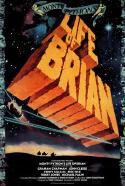 “Monty Python’s Life of Brian” (1979) “Monty Python’s Life of Brian” (1979)
An absurdist farce about a “very naughty boy” who is mistaken
for a messiah, this film is a mockery of some Christians rather than of Christ
(as the Pythons later claimed, they weren’t blasphemers, just heretics).
Nonetheless, it was still protested in America, and banned in Ireland, Italy
and, surprisingly, Norway. It was rereleased in 2004 and its “crucifixion
song” -- “Always Look on the Bright Side of Life” -- is now
featured nightly in Broadway’s “Spamalot.”
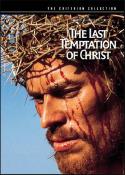 “The Last Temptation of Christ” (1988) “The Last Temptation of Christ” (1988)
A boy who once dreamed of being a priest, Martin Scorsese was drawn to
this imaginative story of Jesus’ tribulations and labored for years to
bring it to the screen. The fact that the novel it was based on had been
condemned by the Catholic church should have warned him there would be protests
and picketers. But who would have expected that the film would be banned in
some Catholic countries and that a Parisian theater showing it would be
bombed?
“Priest” (1994)
After years of scandals, movies about clerical and religious corruption
-- including such horrific exposés as “The Magdalene Sisters”
-- are now commonplace. At the time, however, this story about a gay priest had
to lose seven minutes before its U.S. release. When, with typical
thumb-in-your-eye provocation, Harvey Weinstein’s Miramax then opened the
film on Good Friday, the protests became personal.
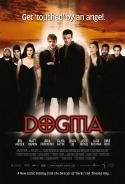 “Dogma” (1999) “Dogma” (1999)
Kevin Smith admitted he expected criticism for his metaphysical comedy
about murderous angels. He expected it, however, to come from longtime fans of
his stoner, secular farces. Instead, it was the religious right that screamed,
leaving the film to be dropped by one distributor and angrily protested when it
finally reached theaters. Once, a deadpan Mr. Smith even joined the picket
line, but the reaction was no joke; the young director also received several
death threats.
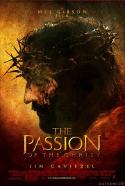 “The Passion of the Christ” (2004) “The Passion of the Christ” (2004)
A devout and conservative Catholic, Mel Gibson committed his own money
to bringing this living Stations of the Cross to the screen, yet its violence
upset even some Christians, and the Anti-Defamation League said it dangerously
blamed Jesus’ death on the Jews rather than on the Romans who hammered in
the nails. The film, an enormous American hit, did poorly in Europe. It was,
however, a smash in Egypt, Turkey, Lebanon and the United Arab Emirates.
Stephen Whitty is film critic for The Star-Ledger of Newark,
N.J.
National Catholic Reporter, June 2,
2006 |

